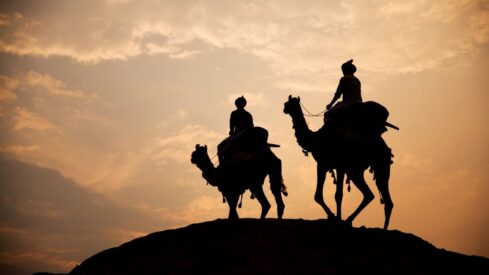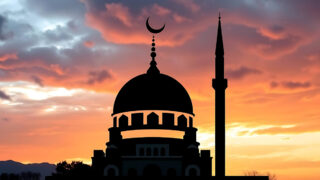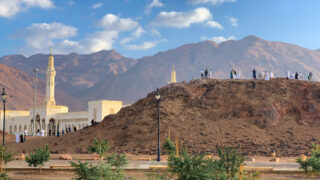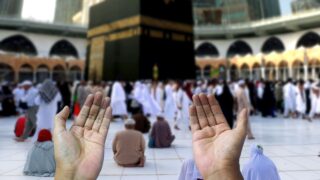Hijrah has played a significant role in Islamic history. It might be described as an uninterrupted process, beginning in the very early days of Islam, and continuing right up to the present day. Hijrah means, literally, to leave one’s homeland and settle in another place. In Islam, this self-exile is not just a matter of moving from one place to another. And it is not meant to serve any material interests; it is meant rather to be undertaken for the sake of Allah: in other words, for some higher purpose.
Hijrah has always had, and still has a great role to play in the process of da`wah. Some examples from Islamic history will demonstrate this.
The first incident took place during the life of the Prophet. As is well known, the Prophet migrated from Makkah to Madinah, a move which had a far-reaching effect upon Islamic history, for it gave Muslims the opportunity to establish an important center there for Islam. There the work of da`wah entered upon a new and better phase, and where Makkah had been the arena for its early struggles, Madinah now became a great field of victory for Islam.
The second incident took place after the death of the Prophet. In his well-known sermon – “The Farewell Sermon” – which he preached near the Mount of `Arafah, the Prophet addressed all the Companions present, saying: “I am the final Prophet. Allah has sent me to mankind till the Day of Judgment: therefore, convey my message on my behalf to all the nations of the world.” After the death of the Prophet, most of the Companions, left their homeland and settled in adjacent countries. There, and wherever else they went, they engaged in da`wah work, and that is why there are now more than one billion Muslims spread across the globe. They intensified their activities to such an extent that they were able to transform entire societies. Eventually, whole nations changed their faith, their culture and even their languages. For example, before the coming of Islam, the Egyptians spoke the Coptic language, but now their mother tongue is Arabic.
It was this Hijrah of the Companions after the Prophet’s death which brought into existence this vast Islamic domain, now commonly referred to as the Arab world. This process of da`wah, of which there are many outstanding examples, took place everywhere.
The fourth example is that of the Indian subcontinent, to which, as is well known, there came many Muslims who had left their own countries — Arabia, Iran, Afghanistan, etc. Once there, they engaged themselves, sometimes directly and sometimes indirectly, in da`wah work. It is thanks to their great efforts that approximately half of the total world Muslim population lives on the subcontinent.
The fifth example of Hijrah refers to the exodus from most of the Muslim countries to the U.S.A., Australia and the European countries. It has been estimated that there are at present about 20 million Muslim migrants. A whole new phase in da`wah work has been started by this universal migration.
Access has been gained to Western countries by the large-scale settlement of Muslims there. Thousands and thousands of Mosques and Islamic centers are being built by these migrant Muslims. Every day there are meetings and conferences on Islamic subjects. There is widespread interaction between Muslims and non-Muslims, so that wittingly or unwittingly, Islam is being introduced into these non-Muslim host countries.
One further point is to be made in this discussion. The Muslims of the early period had to face the difficulties and hardships created for them by their contemporaries, both at the individual and the national level. At that time, in addition to other kinds of adversity, religious persecution was rife. But present day Muslims are living in an age of religious freedom in which there is no hint of religious persecution. Moreover, there have been many favorable developments, like the revolution in technology, which has so speeded up communications that it is now possible to reach a much vaster audience than ever before. Now, there is nothing to hinder them from doing da`wah work: the facilities are there, and the opportunities are endless.
By Wahiduddin Khan


















